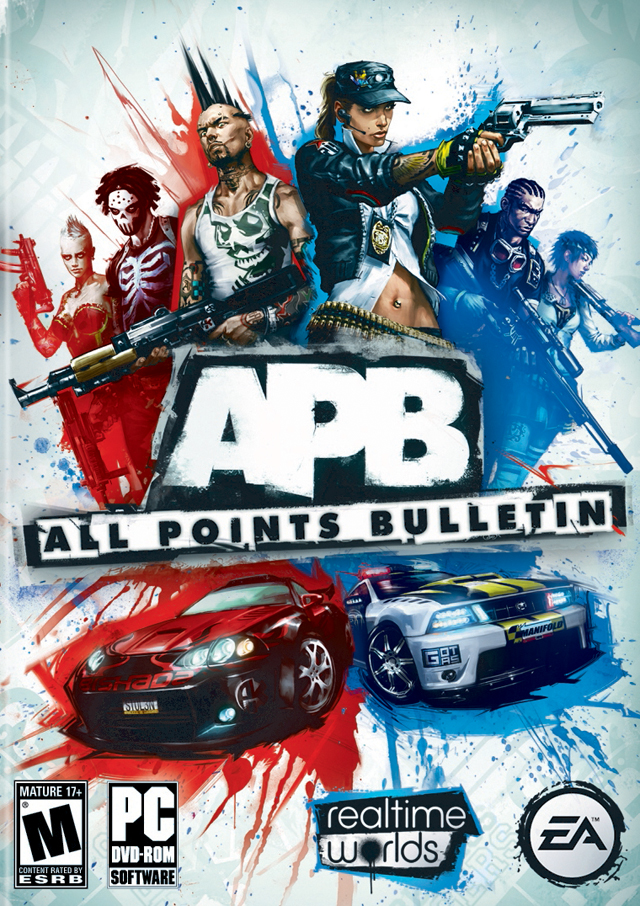'BizDev' In the Games Industry - A little bit about Middleware
By cximran 5 Comments

After a good while of playing lots of games, you’ll start to notice some of the same companies on the logo screens time and time again. Scaleform, Havok, NaturalMotion, and Bink are just a few of the big middleware companies that you might see almost every time you load up a game. You might wonder to yourself - What gives? Well, as someone who’s had some exposure on that side of the business, I might be able to tell you a thing or two.
Let’s start off by addressing the question of “Why middleware?” Middleware, as Wikipedia chooses to define it, is “computer software that connects software components or people and their applications. The software consists of a set of services that allows multiple processes running on one or more machines to interact.” My definition of middleware is far less elegant - I tend to define it as “stuff that makes making games easier.” Middleware could be something as simple as the tech used to compress and play full motion video (like Bink), or as complex as the entire foundation of a game, like the Unreal Engine. The key thing to understand about any middleware technology is that it enables developers the ability to do something in their games quicker, better, or cheaper than they would be able to do that something on their own. This could include drawing 2D art for menus or UI elements, like Scaleform offers, or it could include the rapid generation of foliage, like Whiskey Media favorite SpeedTree. All in all, when a developer wants to get something done under budget or ahead of a deadline it’s often easier to fork over the licensing costs for middleware than it is to spend valuable programming hours building a solution in-house.
So, you’ve got these entire busness built on providing a certain piece of the game development puzzle to studios, publishers, and in some cases even students and individuals. How do these people/companies find each other? More importantly, what’s the process like from first contact to getting that placement on that intro screen? Well, the process is actually pretty straightforward and it involves something that most gamers tend to ignore when it comes to how their favorite games end up being made: sales.
Everyone who’s ever been in the sales business has probably seen this scene from Glenngarrry Glen Ross. It nicely sums up the extreme pressure (and the potential for extreme rewards) in a sales environment. The sales process in video games isn’t as high pressure, quite frankly, and thankfully there is no domineering Alec Baldwin to emasculate me in front of my peers.
One of the most important aspect of the sales cycle is Customer Relationship Management. Anyone who’s ever dealt with managing contact information from multiple customers has probably dealt with Customer Relationship Management, or CRM. Right now, the de facto tool for CRM is Salesforce. Having spent, in aggregate, hours and hours in front of this familiar interface I can say with absolute confidence that I absolutely hate Salesforce, but as a salesperson you need to have a way to manage all of the contacts you meet and the communications you have with said contacts. Your goal with a CRM solution is to track the sales flow all the way to finally closing that deal.
The Steps of a Deal
The Lead
- You meet this person or contact through either looking at potential clients online, an inbound interest from your marketing team at a trade show, or even straight up cold calling someone at a studio (I’ve cold called multiple times before, it’s not a fun experience in the slightest).
The Pitch
- If you get your foot in the door and the prospective client wants to hear more, you set up a time to meet either in person or over the phone to talk about the middleware solution that you offer. In my case, more often than not it involved me going to a game studio and showing some team members how our VoIP middleware worked by busting out a pair of headphones and some speakers (My favorite experience in this had to have been the time I was at Epic Games trying to get them to incorporate our tech into Gears of War 3 at the time). In the pitch the goal is to have a bulletproof demo of your solution so you can impress the client enough to have them keep talking to you (we were so paranoid about technical issues that we carried two phones on different networks in order to tether an Internet connection if the available Internet wasn’t sufficient).
The Proposal
- If the pitch goes well, the next step is to give the game developer a custom tailored proposal with the package that we would offer them and some (admittedly inflated) price points. Each proposal was custom suited to a game, using all the knowledge we had of the game to create custom use cases for the player that could be made better through our VoIP tech.
The Negotiation
- This is what makes or breaks a really good salesman - trying to lower the price while still trying to score as much money as possible (after all, your commission depends on big your sale is). Since we generally give some pretty high initial price points, you can now give the client enough room to wiggle their way down to a price that they’re happy with. In addition to that, this is where the all important logo slides usually come in. In exchange for a cut rate on the deal, many middleware providers ask for prominent placement in the game’s startup screens so that they can build some marketing awareness and create some inbound leads from developers who also build high quality games. The sales cycle continues from here.
So there’s the basic lowdown on middleware. Middleware sales isnot something that most people think they want to do with their lives, but the benefits of traveling to various game studios and meeting some people who build some of the finest games around is something that I personally found to be really rewarding. I’m going to go ahead and cut it off here, as this post is getting long as it is. If you have any questions though, feel free to post and ask!






Log in to comment